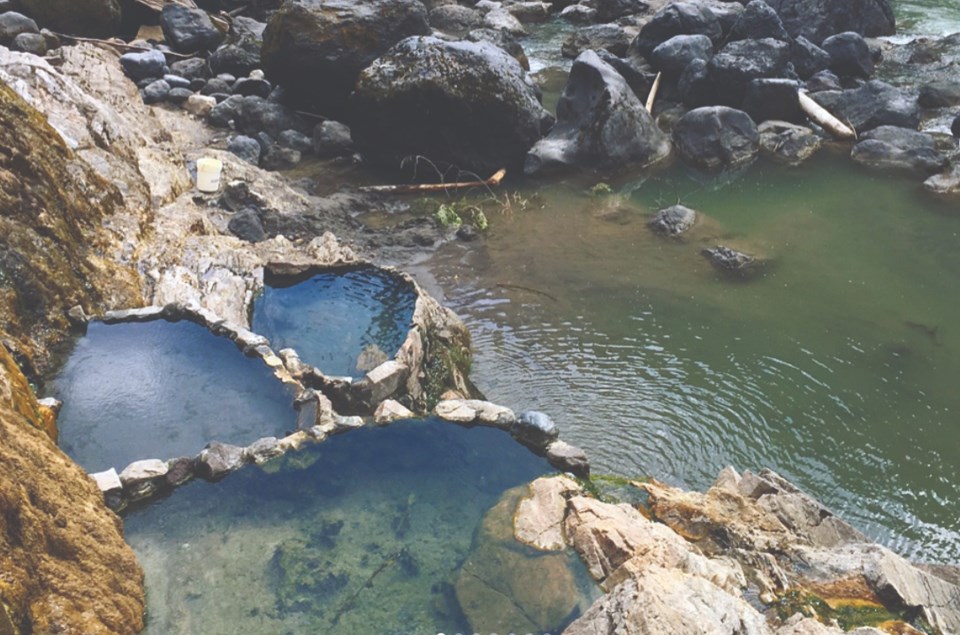A visitor-use management strategy for the Meager Creek and Keyhole hot springs northwest of Pemberton is now in the implementation stage, with key issues identified and management strategies in place for the future.
The Nqw'elqw'elusten (Meager Creek) and Múmleqs (Keyhole) hot springs are in Lil’wat Nation territory, and are places of cultural and spiritual significance to the Nation, according to a provincial document released in April.
Through a public engagement process conducted in conjunction with the Lil’wat last year, the provincial government identified several key issues with the springs: unauthorized visitation is taking place despite closures, and negatively impacting important cultural places, wildlife and the environment; Lil’wat citizens do not feel comfortable visiting the areas; and many visitors lack awareness of Lil’wat culture, as well as knowledge about backcountry preparedness, respectful use and potential safety risks.
Further, info about the springs on social media is often inaccurate, and doesn’t respect closures currently in place—Nqw'elqw'elusten is currently closed year-round, while Múmleqs is closed seasonally from April 1 to Nov. 15.
The strategy also noted that user-built tubs at Múmleqs are not professionally designed or maintained, and unsanctioned water diversion is negatively impacting at-risk species like the vivid dancer damselfly.
Lil’wat Chief Dean Nelson compared the situation to what has taken place at Joffre Lakes in recent years, where an explosion in popularity driven by social media has led to parking and garbage issues.
“That was where [the hot springs were] going,” Nelson said, adding that, when natural spaces become commodities, “I think that’s when the abuse comes in, and it wrecks it for everyone.”
In collaboration with the province, the Lil’wat has developed a shared vision for the springs: That the Lil’wat has a presence on the land, and its rights and title are respected; sacred sites, archeology sites, pictographs, traditional trails and other important features are protected; Lil’wat citizens are able to feel comfortable carrying out traditional and cultural practices on the lands; the ecosystem and wildlife of the area are protected; and visitors have an opportunity to learn about Lil’wat culture and history.
The visitor-use strategy includes ideas for achieving that vision, such as increased on-site management, education and monitoring.
But it remains a work in progress, Nelson said.
“I think [the management strategies] are good. They’re slow going. We don’t want to open it right now, so we’re just kind of looking at different things,” he said.
“We haven’t really had a say in a lot of things happening in our lands, and now that we do we’re taking our time in doing those things.”
Aside from their cultural significance, the hot springs also provide important habitat for the threatened South Chilcotin grizzly bear population, as well as a migration corridor for deer, moose, and mountain goats, according to the province.
The Mount Meager Volcanic Complex is also considered one of the most geologically active areas in North America. In 2010, warm weather triggered the collapse of about 53 million cubic metres of rock and debris from the south flank of Mount Meager—and the area continues to be prone to large landslides, avalanches and flooding.




